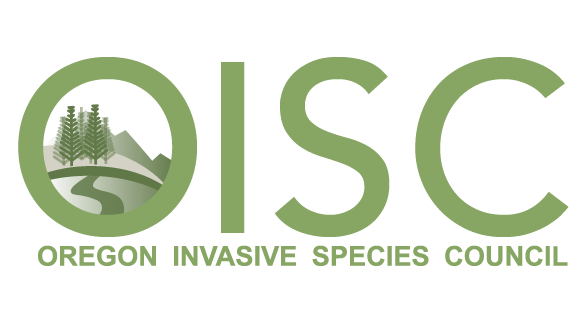October & December 2020 OISC Meetings Recap
/In case you missed them, here is a quick recap of the most recent Oregon Invasive Species Council meetings held October 21 and December 9, 2020. We had 31 attendees at the October meeting and 28 attendees at the December meeting that participated remotely, representing 34 organizations in total. Representation included 6 Federal Agencies, 6 State Agencies, 2 Educational Institutions, and others including tribes, NGOs, advocacy groups, and individuals.
Highlights from the October meeting include:
DR Michel (Upper Columbia United Tribes, UCUT), Blaine Parker (Columbia River Inter-Tribal Fish Commission), and Rick Boatner (Oregon Department of Fish & Wildlife) gave updates on and informed a discussion around regional collaborative efforts to limit the spread of Northern pike including a regional working group, outreach, and awareness building. The Council will provide a letter of support regarding the efforts of UCUT and others to the Northwest Power and Conservation Council and will work on Northern pike outreach and education collaboratively with partners.
Troy Abercrombie (Western Invasives Network) kicked off a discussion on leveraging partnerships & activities to advance statewide objectives involving post-fire recovery & invasive species management. The Council will compile invasive species focused post-fire recovery resources online and reach out to lead agencies to encourage integration of messaging where possible.
Jalene Littlejohn (OISC Coordinator, Samara Group) and Rian vanden Hooff (Oregon Department of Environmental Quality) gave an update on the current status of the Statewide Strategic Action Plan reporting & legislative report. Council members’ input and information regarding their activities in the region will be used to develop a report.
Nikki Brooks (U.S. Customs & Border Protection) gave an update on behalf of the Worst Invaders Working Group. The working group has been working on producing a new format for you all to see soon that includes 3 products: Worst Invaders list (overview of available information), web/factsheet resources, and risk assessments.
Catherine de Rivera (2020 OISC Chair, Portland State University) provided Chair updates to the Council, including announcing that Christine Moffitt is coming back for a second term and Eugene Wier with The Freshwater Trust will be serving a first term in the environmental stewardship member seat.
Highlights from the December meeting include:
Rian vanden Hooff (Oregon Department of Environmental Quality, DEQ) announced that, with the change in his role at Oregon DEQ, he will be transitioning out of the OISC Ex-Officio Voting Member role. Effective January 2021, Josh Emerson will be representing Oregon DEQ.
Catherine de Rivera (2020 OISC Chair, Portland State University) shared samples of this year’s Portland State University Bioinvasions student projects. These projects will be shared on the OISC News Channel soon!
Catherine de Rivera (2020 OISC Chair, Portland State University) and Jalene Littlejohn (OISC Coordinator, Samara Group) gave an overview on the OISC vision and next steps strategy considerations, which was distilled through individual conversations, existing statutes, and the review that Institute for Natural Resources did of the OISC in 2015. The main takeaways included the need for a memorandum of understanding (MOU) with the Oregon Department of Agriculture (ODA), possible Oregon Department of Justice (DOJ) review, establishing ways to foster more continuity across years, elevating invasive species issues as critical issues for funding, and creatively and collaboratively identifying and pursuing new opportunities for funding. As a result, the suggested steps for consideration are to form an Executive Committee, consider options for and develop a plan for the OISC Coordinator position, determine timing of Oregon DOJ review collaboratively with ODA, develop an MOU working group, encourage the Budget & Funding Committee to meet monthly, and develop and prioritize a set of actions for Network outreach, including outreach to policymakers. The group agreed with these priorities for 2021.
Jas. Adams (OISC Public Member) gave an update on the Statewide Strategic Action Plan reporting effort. The action report form will be simplified and re-sent out to the Council to complete.
Nikki Brooks (U.S. Customs & Border Protection) gave an update on behalf of the Worst Invaders Working Group. The group has started putting species information into the fields that were created for the list. This effort is being used as a trial run with high interest species to see where the gaps are and it’s going really well.
After all 2021 Officer votes came in and were tallied, Rick Boatner (Oregon Department of Fish & Wildlife) was voted in as 2021 Chair and Troy Abercrombie (Western Invasives Network) was voted in as 2021 Vice Chair.

